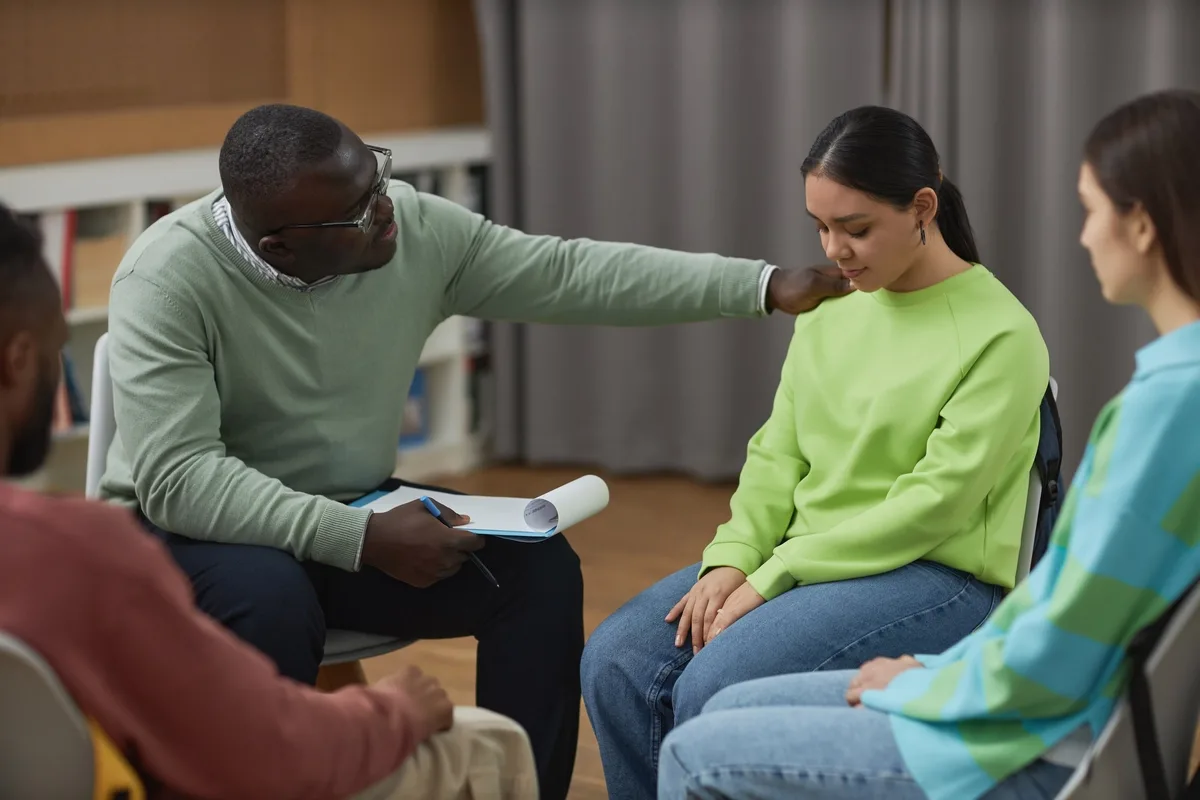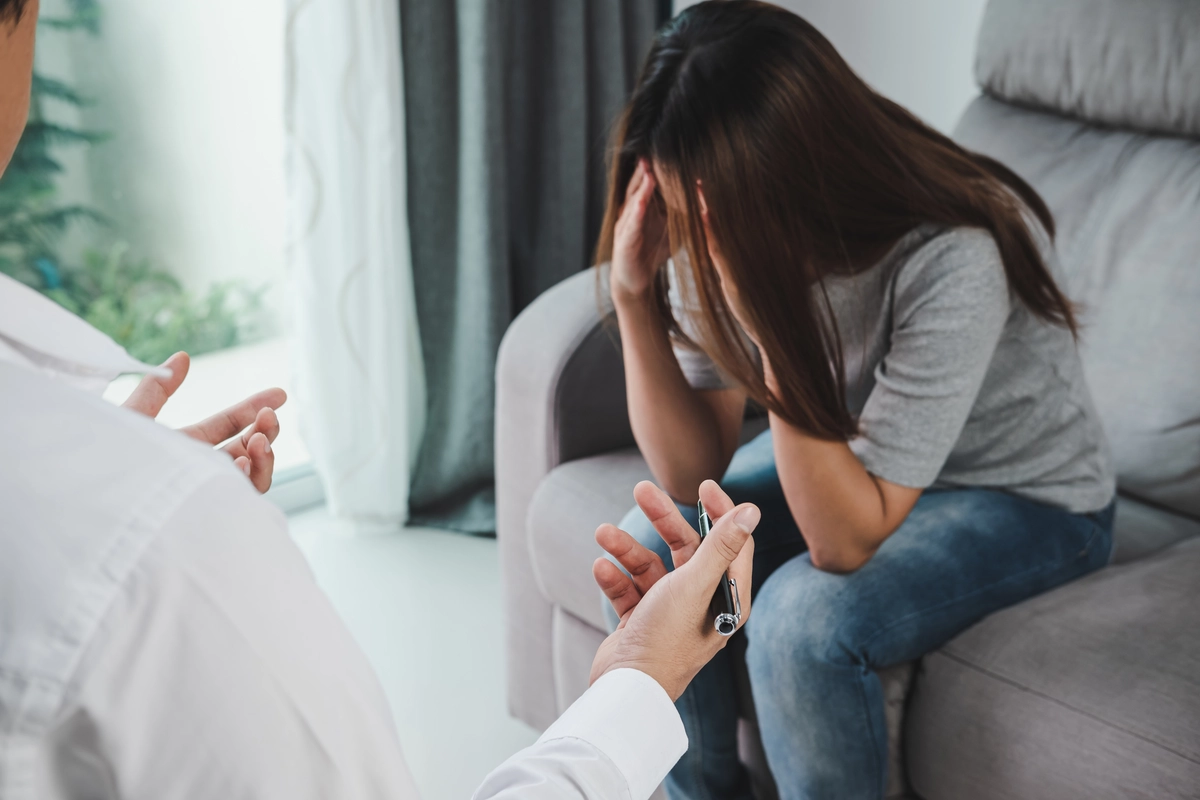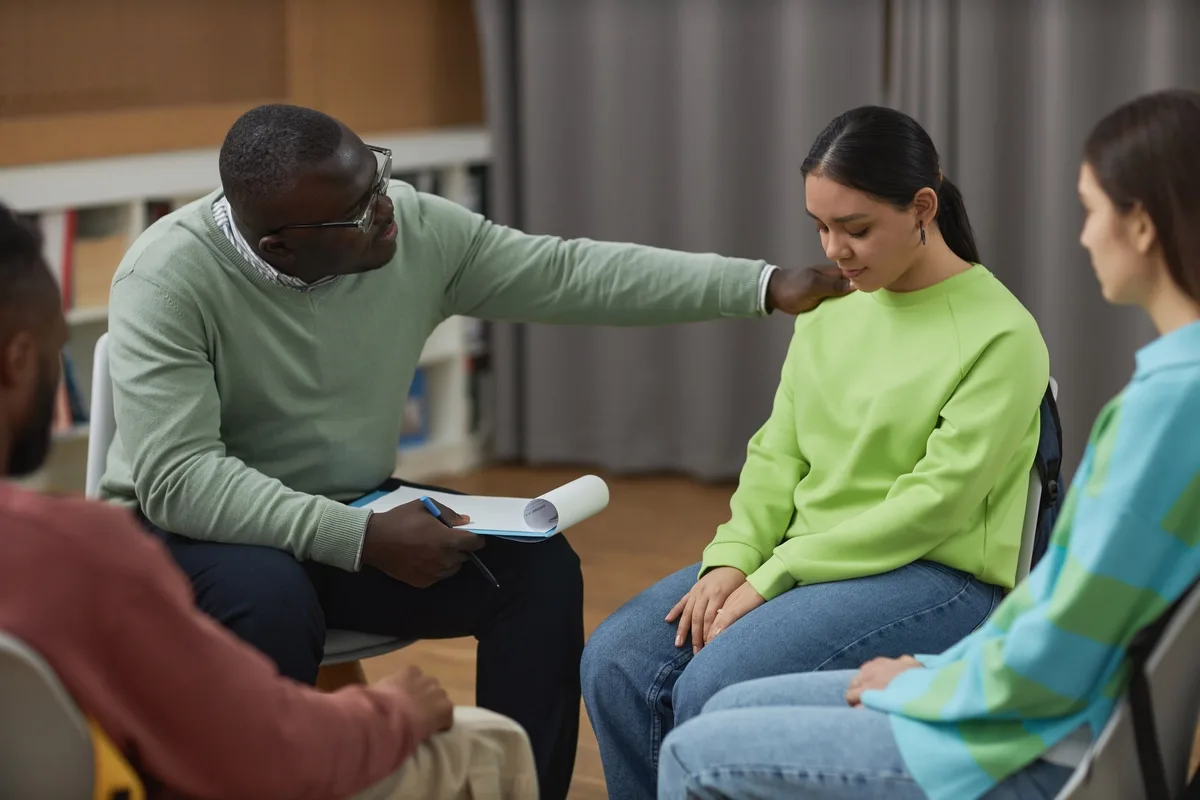24/7 Helpline:
(866) 899-221924/7 Helpline:
(866) 899-2219
Learn more about PTSD Treatment centers in Chaffee
PTSD Treatment in Other Cities

Other Insurance Options

Oxford

WellPoint

Optima

Kaiser Permanente

Carleon
Beacon

PHCS Network

Health Net

Group Health Incorporated

BHS | Behavioral Health Systems

Anthem

Ambetter

Holman Group

Choice Care Network

EmblemHealth

Excellus

Covered California

Humana

ComPsych

Amerigroup


New Vision Counseling
New Vision Counseling, located in Sikeston, Missouri, offers behavioral health care and mental healt...

Gibson Recovery Center
Gibson Recovery Center is a non-profit rehab located in Sikeston, Missouri. Gibson Recovery Center s...

Awakenings
Awakenings is a private rehab located in Kelso, Washington. Awakenings specializes in the treatment ...


































Bootheel Counseling Services
Bootheel Counseling Services offers outpatient counseling services for individuals or families strug...

Fair Havens Recovery Center
Fair Havens Recovery Center is a private rehab located in Sikeston, Missouri. Fair Havens Recovery C...

Kelso Treatment Solutions
Kelso Treatment Solutions is a private rehab located in Kelso, Washington. Kelso Treatment Solutions...











































